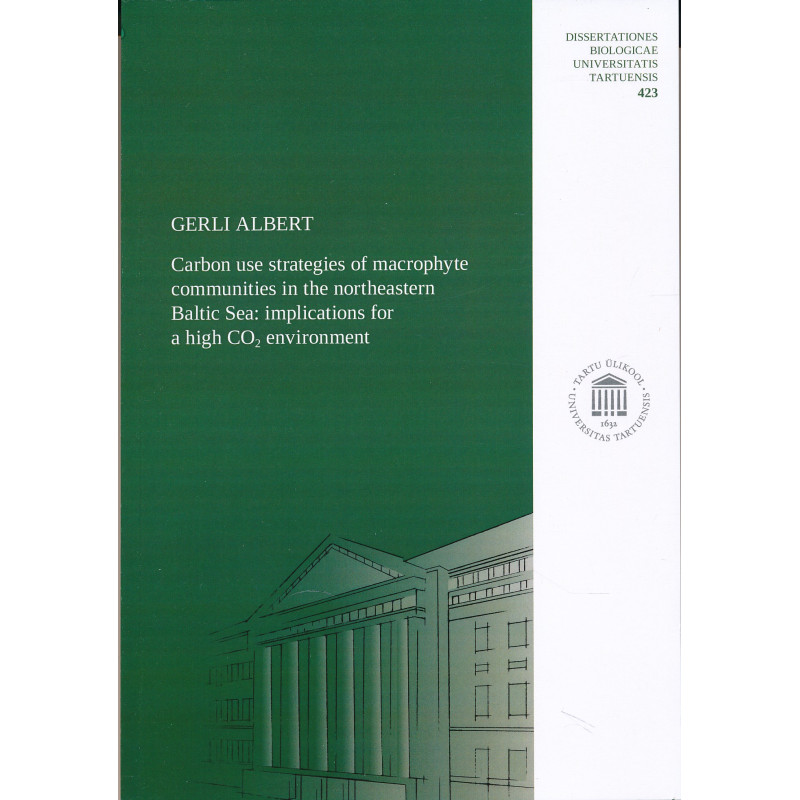




Gerli Albert
Tartu : Tartu Ülikooli Kirjastus, 2023
127 p. : ill.
ISBN: 9789916273401
Dissertationes biologicae Universitatis Tartuensis, 1024-6479 ; 423
Paperback dissertation in very good condition.
The ocean's capacity to absorb CO2 helps to reduce atmospheric CO2 levels and mitigate human-induced climate change. The oceans have already absorbed around 30% of CO2 emissions, leading to ocean acidification. When CO2 reacts with seawater, it significantly alters carbonate chemistry, increasing dissolved CO2 and bicarbonate concentrations while reducing carbonate concentrations. According to IPCC emission scenarios, surface water pH in the central Baltic Sea could drop by up to 0.5 pH units by the end of the century as atmospheric CO2 levels continue to rise. The Baltic Sea is more vulnerable to ocean acidification than the open ocean due to factors like low DIC concentrations and low alkalinity in most areas, high freshwater input, and low salinity. Research has shown varied responses to ocean acidification across species, populations, and even life stages within the same species, with no universal pH thresholds applicable to all organisms. This doctoral thesis aimed to assess the impacts of increased carbon on common macrophytes in the northeastern Baltic Sea's coastal ecosystems to anticipate potential changes under future climate conditions. This was achieved by studying the most common macrophyte species, which, as primary producers, play a crucial role in trophic food chains, nutrient cycling, habitat provision, littoral microclimate, hydrochemical processes, and sediment dynamics. Carbon uptake mechanisms were examined to understand and compare how different macrophyte species and communities might respond to predicted changes in seawater chemistry due to ocean acidification in the brackish Baltic Sea. It was found that the anticipated change in seawater carbon chemistry may cause shifts in the distribution of habitat-forming species. Generally, macrophytes in the shallowest and deepest parts of the vegetated zone are expected to benefit physiologically under future CO2 conditions, while intermediate communities dominated by the perennial brown alga Fucus vesiculosus may experience a decline in fitness. These differences in fitness could have consequences for competitive interactions and species distribution in a future climate.